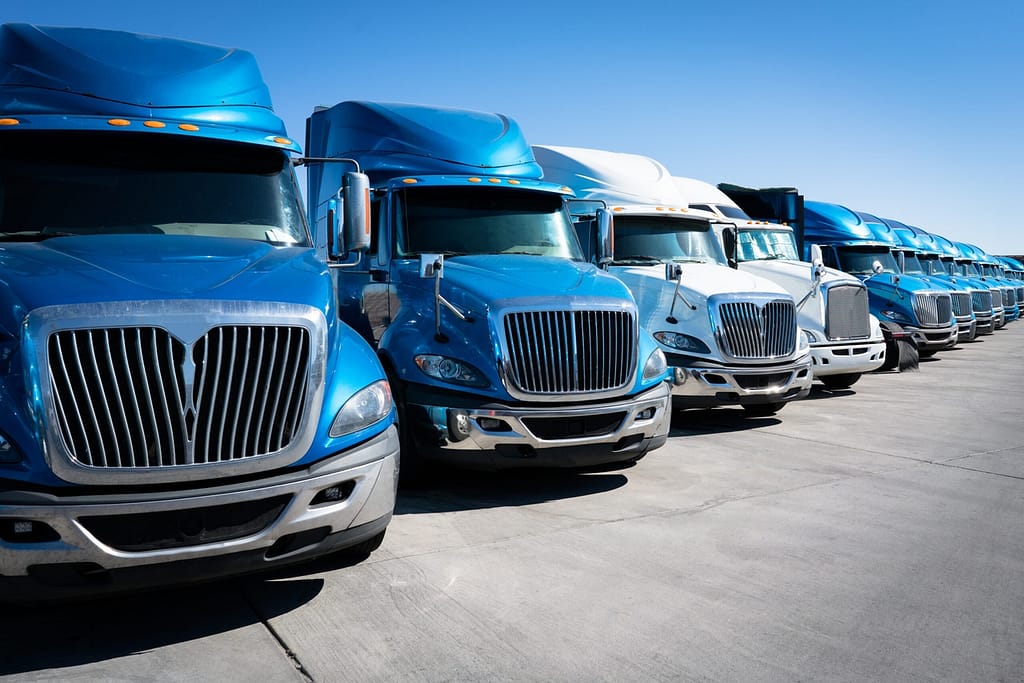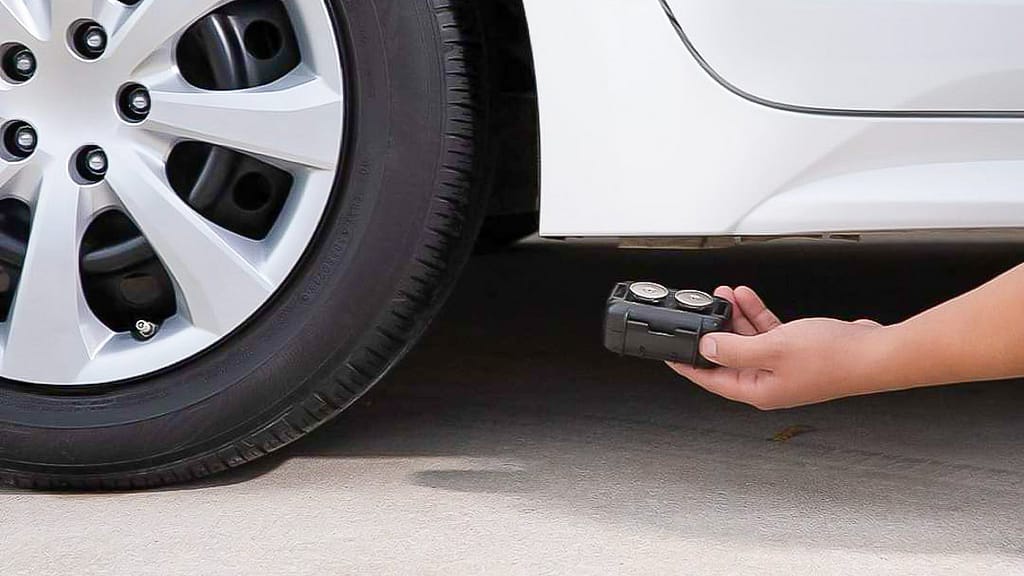How much does fleet tracking cost? Where do I begin implementing Industry 4.0 in my business?
Well, one thing at a time: fleet tracking is all about using GPS and other tech to keep tabs on your vehicles. It’s more than just seeing dots on a map, though! With the proper tools, knowing where your vehicles are, how they’re being driven, and if they’re being used efficiently is easy.
Are you thinking about investing in fleet tracking but unsure about the costs? You’re definitely not alone! Many businesses hesitate, seeing only the initial sticker shock and missing the bigger picture.
But fleet tracking is an investment that can pay off big time – keep on reading to find out how. Our team at Datanet IoT understands that every business is unique, which is why we offer tailored solutions to fit different needs and budgets.
So, how much does fleet tracking cost? Let’s break down the components and explore how to make an informed decision!
How much does fleet tracking cost? Price breakdown

When you’re looking at fleet tracking, it’s easy to get lost in the details. To get a good grasp of the overall expense, you have to understand what goes into it. Here’s a breakdown of the typical costs:
First, there’s the hardware. This includes the GPS tracking devices that you install in your vehicles.
The cost of these devices can vary depending on the features they offer: basic devices that only provide real-time location tracking are usually the cheapest; more advanced devices may include features like geofencing (setting up virtual boundaries), driver behavior monitoring (tracking things like speeding and harsh braking), and even the ability to connect to your vehicle’s engine to get data like fuel consumption and engine diagnostics.
The durability of the device and how easy it is to install can also affect the price. Some devices are designed for self-installation, while others require professional installation, which will add to the cost.
Then, there’s the software. You use this to see where your vehicles are, generate reports, and manage your fleet.

Its cost depends on a number of factors, including the number of users you need, the amount of data storage you require, the reporting features you want, and whether you need the software to integrate with other systems you use, like accounting or dispatching software. Some providers offer tiered pricing, with different levels of features at different price points.
Speaking of installation, that’s another cost to consider. While some GPS tracking devices are easy to install yourself, others require professional installation.
If you’re not comfortable working with your vehicle’s electrical system, it’s best to hire a professional installer. This will add to the upfront cost, but it can also give you peace of mind knowing that the devices are installed correctly and won’t cause any problems.
Finally, there are the data costs. Most GPS tracking devices use cellular networks to transmit data, which means you’ll need to pay for a data plan; its price will depend mostly on how much data the devices transmit.
Some providers offer unlimited data plans, while others charge by the megabyte. You’ll also want to be aware of potential overage fees if you exceed your data limit.
Don’t forget to factor in any potential hidden costs – some providers may charge activation fees, cancellation fees, or training costs. Be sure to read the fine print and ask about any potential hidden costs before signing up for a fleet tracking service!
How fleet tracking systems can help maximize your business’s ROI

While the initial cost of fleet tracking can seem daunting, it’s important to remember that it’s an investment that can pay for itself many times over in the long run. With effective fleet tracking tech, you’ll significantly reduce your long-term expenses and improve your bottom line.
One of the biggest ways to save money with fleet tracking is through fuel savings. By optimizing routes, reducing idling time, and monitoring driver behavior, it becomes much easier to minimize fuel usage.
Think about it: if you can reduce your fuel consumption by just 10%, that can add up to thousands of dollars in savings per year per vehicle.
Fleet tracking can also help you reduce maintenance costs. Scheduling preventative maintenance at the right intervals will prevent small problems from turning into expensive ones. You can also monitor engine diagnostics to identify potential problems early on, which helps you avoid costly breakdowns and extend the life of your vehicles.

Another way to save money with fleet tracking is by reducing labor costs. With better dispatching efficiency, you’ll get more out of your existing workforce. For example, if you can dispatch drivers more efficiently, they can complete more jobs per day, increasing your revenue.
It’s also possible to use geofencing to prevent drivers from taking unauthorized detours, which can waste time and fuel.
Furthermore, in the unfortunate event that a vehicle is stolen, GPS tracking can be invaluable in helping law enforcement recover it quickly, saving you the cost of replacing the vehicle and paying the insurance deductible.
You see, although sometimes more expensive up front, fleet tracking solutions can reduce overall costs in the long run. This includes preventing loss, making the best use of everything you have, and making your inventory run smoothly.
How to choose the perfect fleet tracking solution for you

Choosing the right fleet tracking solution is a crucial decision that requires thought. It’s essential to find a solution that both fits your budget and meets your specific needs and provides long-term value. Here’s a breakdown of key factors to evaluate:
First, think about what your fleet tracking needs and goals are. Take some time to identify the specific challenges you’re facing and what you hope to achieve with fleet tracking.
Consider the size of your fleet, the types of vehicles you operate, and any regulatory requirements you need to comply with. This will help you narrow down your options and choose a solution that’s tailored to your unique situation.
Not all fleet tracking solutions are created equal, so it’s important to compare the features offered by different providers. Consider things like real-time tracking accuracy, geofencing capabilities, driver behavior monitoring features, reporting options, and integration capabilities with other systems you use.
Which features are most important to you? Take them into account!
You’ll want to choose a solution that can grow with your business. As your fleet expands or your needs change, you’ll want a system that can adapt accordingly. Look for a provider that offers flexible pricing plans and the ability to add or remove vehicles as needed.
Also, take some time to read online reviews and testimonials from other businesses that have used the fleet-tracking solutions you’re considering. This can give you valuable insights into the real-world performance of the systems and the level of customer support offered by the providers.
It’s also a good idea to request a demo of any fleet tracking solutions you’re seriously considering. This will allow you to test out the software and hardware firsthand and see how they work in practice. Pay attention to how easy the system is to use and whether it meets your specific needs.

How much does fleet tracking cost? Conclusion
In conclusion, the cost of fleet tracking is an investment, not a hefty expense. The secret to accessing huge benefits and improving your company’s bottom line lies in carefully evaluating your needs, comparing different tracking solutions, and maximizing your return on investment!
Datanet IoT – smart tracking solutions
At Datanet IoT, we understand that finding the right tracking solution is a big decision. That’s why we offer a wide range of fleet and asset tracking options to fit diverse needs and budgets, not just for vehicles, but also for all sorts of equipment as well as comprehensive environmental monitoring solutions.
Our commitment is to provide not only reliable hardware and robust software but also expert support every step of the way. Let us show you how our tailored systems can streamline your operations with even better security. Reach out today for a consultation or a demo!


